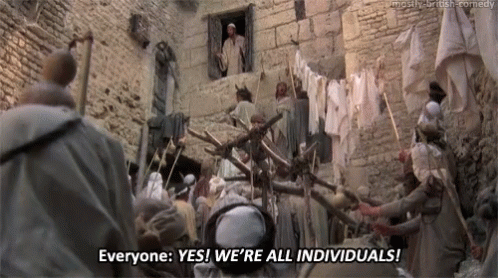The Battle Against Procrastination: Some Tips and Tricks I
by Carina Becker
My PhD project is currently in a stage where I am writing drafts of chapters, which involves writing 10-20 pages about every other week. After one and a half years of mainly reading, researching, and note-taking, this has been quite the change in my work rhythm and has come with a familiar problem: how to get started? For this reason, this three-part blog post will be centred around motivation and productivity. I’ve compiled some of my own tricks and habits and added some given to me by my lovely colleagues and friends.
If you feel like your current way of dealing with deadlines, writing, and studying might need some input, the following suggestions might give you some ideas to experiment with. Do bear in mind, though, that it may take a while to find out what works best for you: Everyone is different and not everything works for everyone.
Furthermore, please make sure you keep things healthy. It is important to know how to get yourself to work but knowing how to relax and unwind is just as crucial.
First, find out some general things about your way of working:
- Find out when you are most focused, and for how long: Whether it is because you get the most peace and quiet in the evening or because you need time to properly wake up in the morning, or because you’re most relaxed after working out – once you know which time of day works best for you, try to make the most of it.
- Find out which steps you find most difficult: Taking the example of a term paper, which stage is the one where you get stuck most easily: is it the brainstorming, the reading, the research, or the writing? Knowing this may help you to estimate how long each kind of task takes and how motivated you’re going to be for it; this, in turn, helps planning and scheduling your work.
- Find out what you enjoy doing most and what you’re good at, and let it affect your APs’ topics: There is no shame in building on your strengths. If you can justify doing what is easiest for you whenever you get a choice, it can reduce your workload during exam phases and help you to stay motivated. Whether it is a particular analytical method you enjoy applying, or a text you know inside-out, or the intersection between your major and minor subject of studies – find your jam, and exploit it.
Admittedly, it is unlikely that you can do all your APs about the same thing. But if – among all your APs this semester – there’s just one that takes you less effort to prepare, this can save you a lot of time, and it might be more enjoyable for you to acquire new skills and knowledge for the other ones. Furthermore, this lets you build on previous experiences and helps you to specialise in your interests, which, in turn, could also be helpful to find a project for your BA or MA thesis. - Consider spreading out your tasks across different APs rather than doing them one after another. This will allow you to switch between AP projects depending on your motivation, time, or just the kind of day you’re having. If you feel stuck with a task that you find too difficult at that particular moment, do something that is easier for you instead. This strategy can be especially useful on bad days of any kind: It gives you the (justified) feeling that you achieved something – against all odds. No matter how minor your progress is on a bad day, it’s something you don’t have to do on the next one. This can also work if you have other things to do alongside exams, of course. For example, I drafted this blog post on a day where it seemed impossible to get anything done for my PhD: I had only half a day, I was anxious, the weekend was around the corner – so writing this piece is how I replaced (or procrastinated) my difficult task with an easier one and still got something off my desk.
This first of my three-part blog-entry served mainly to address some preliminaries that might help you access your way of working. Being aware of your strengths and weaknesses and what you like and dislike can help you organise your tasks, and may become useful in the course of your studies more generally.
In the following two parts, I will focus on workplaces and how you could get some work done when it's just not your day.



